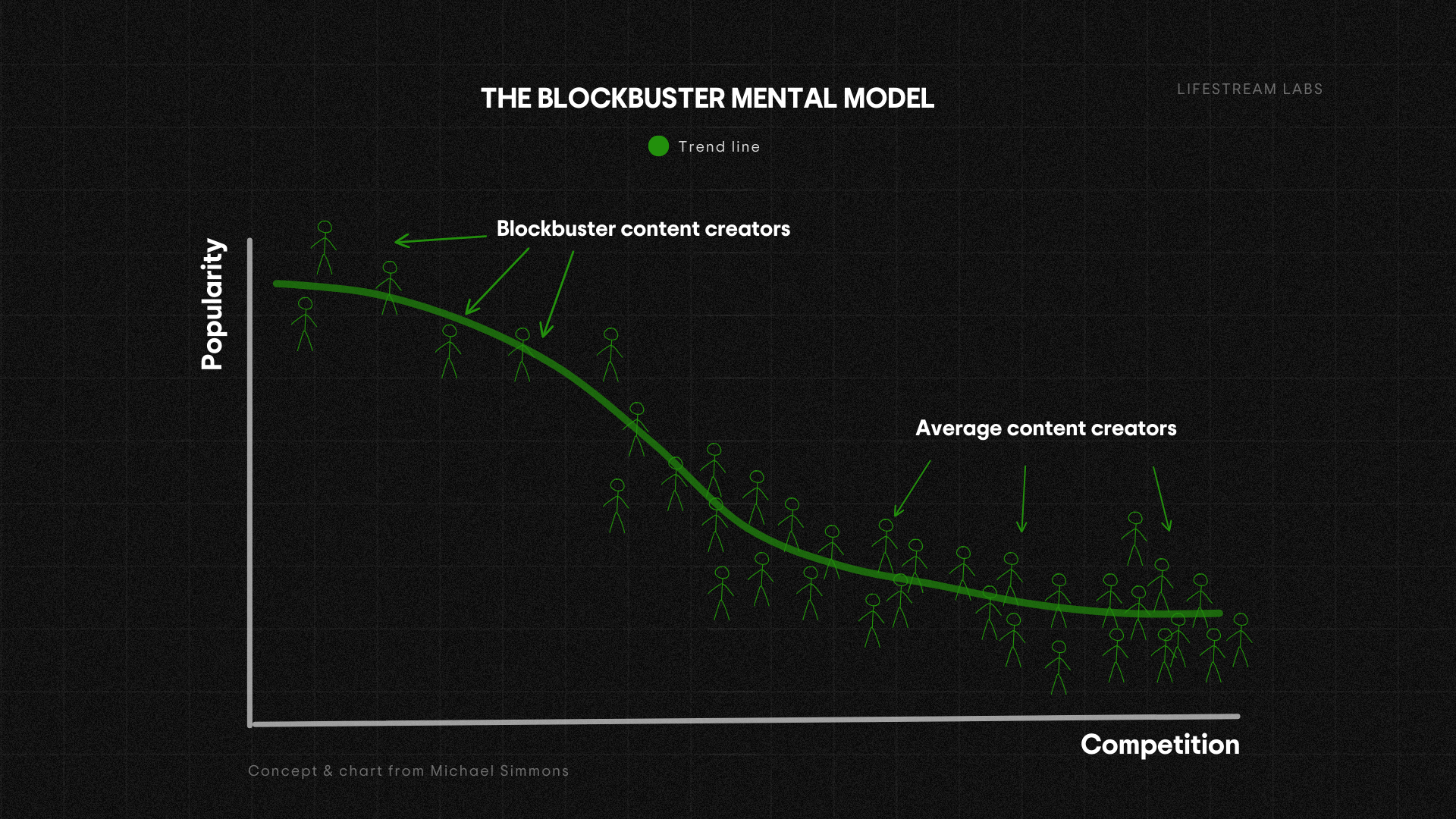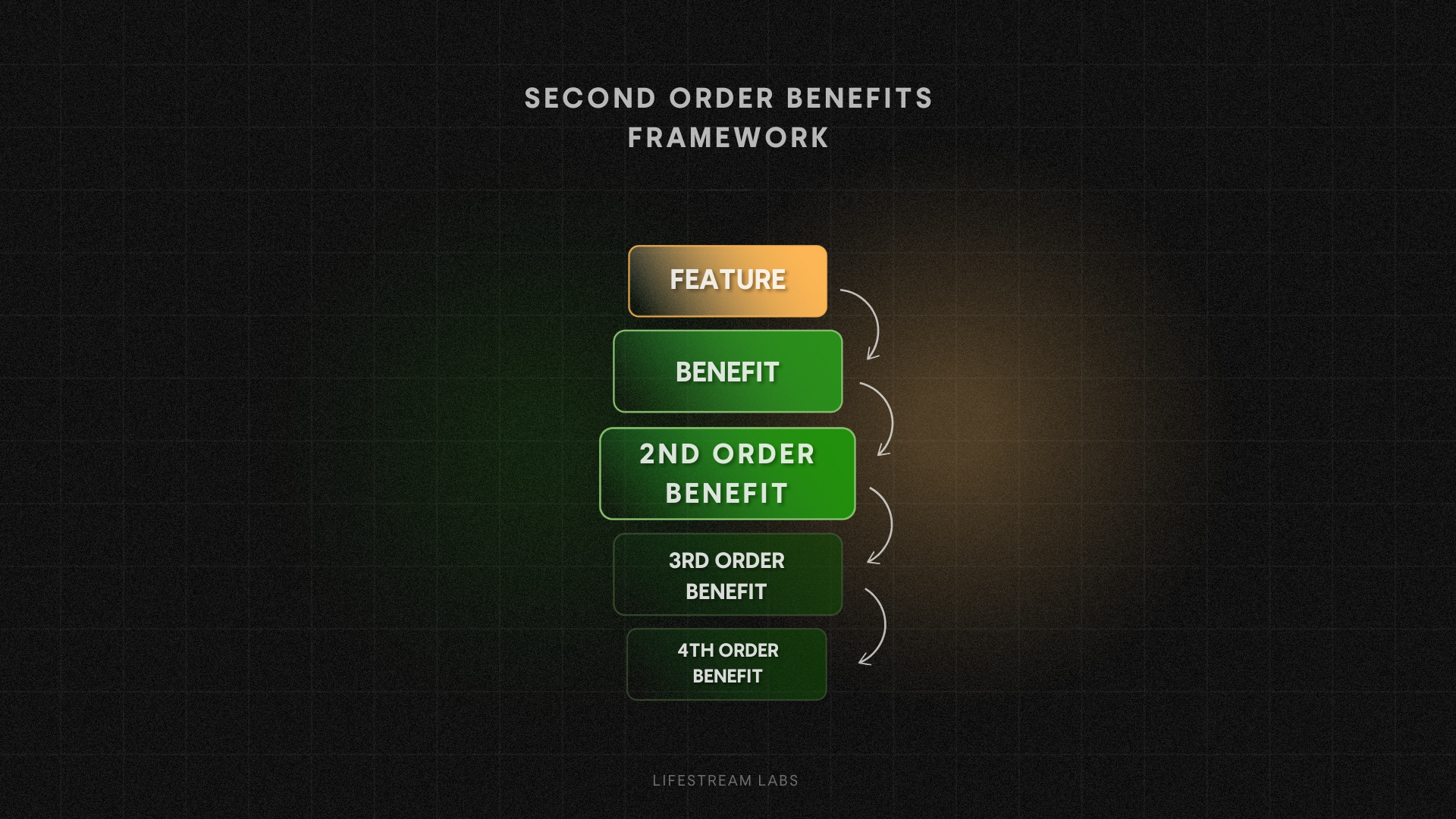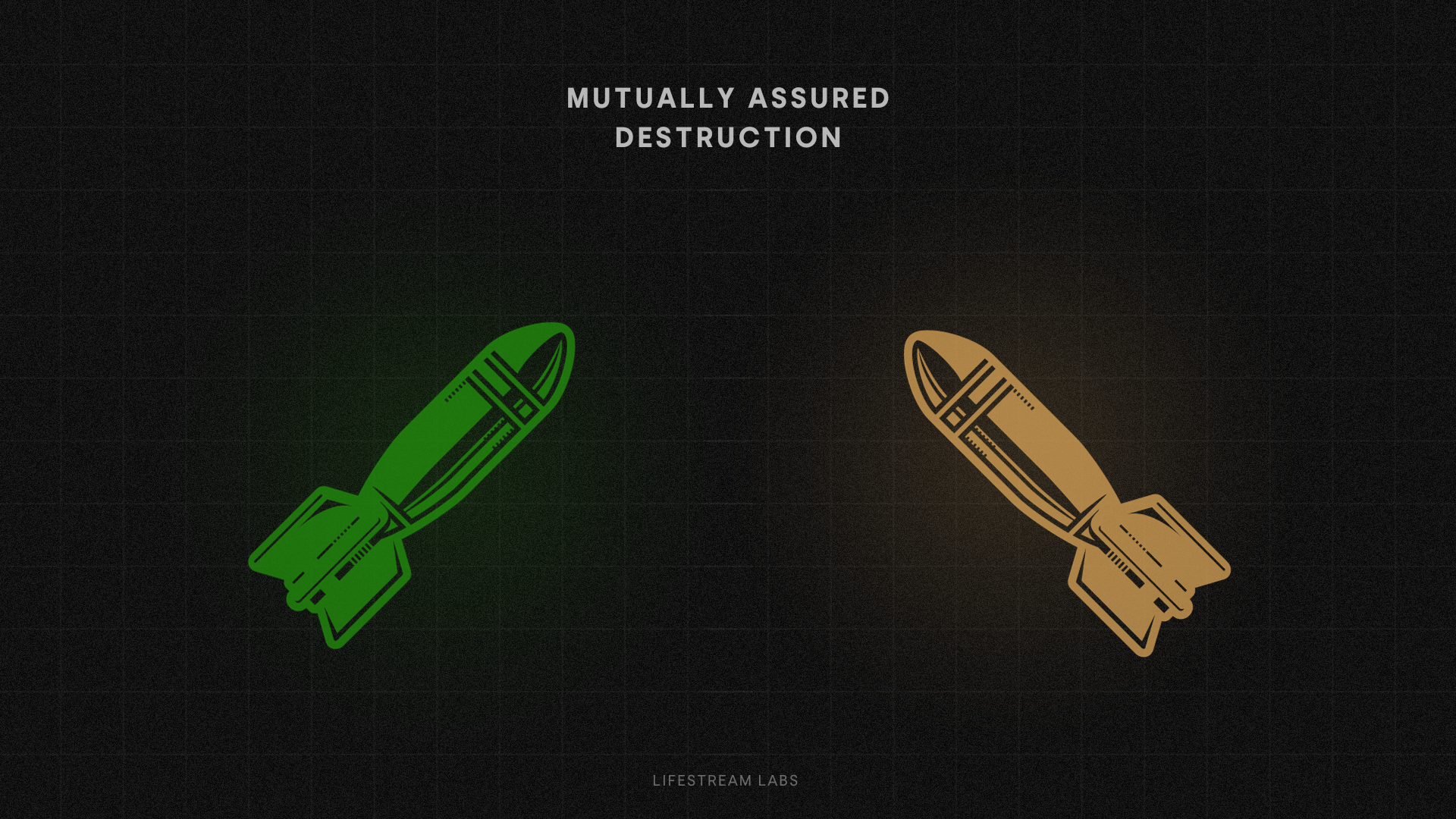Warren Buffet credits the late Charlie Munger with having “the best 30-second mind in the world.”
Charlie’s secret to making great decisions fast?
He studied mental models to accelerate his understanding and decision making in everything he did.
“Developing the habit of mastering the multiple models which underlie reality is the best thing you can do.”
- Charlie Munger
✳️ A mental model is a concept, strategy, or process that’s condensed into its most simple form.
They’re not always perfect.
But when applied properly they do offer the benefits of
- Clarity in the midst of complexity
- Simplified understanding
- Faster decision making
- Greater confidence
- New perspectives
- Problem solving
You’re already very familiar with the concept of mental models.
Opportunity cost, for example, is a mental model you likely use on a regular basis.
This mental model is used to weigh the trade off (cost) of making one decision over another.
When contemplating my decision to drop out of college 1 semester before graduating, I used two primary mental models to make my decision in a matter of minutes:
- Opportunity Cost
- Will it make the boat go faster?
While closely associated they are a bit different.
First I weighed the opportunity cost of staying in school versus dropping out and building my online presence and business.
Although I loved my University, I was learning far more outside of school (even with a 3.95 GPA) and I knew I never valued or needed the degree in the first place.
So, I could either get a few thousand dollars of more debt and a degree I didn’t value while sacrificing the opportunities and ideas I already had in the palm of my hands in the world of entrepreneurship...
OR
I could sacrifice the comfort and familiarity of college and pursue my true potential.
But the final nail in the coffin was asking myself, “What will make the boat go faster?”
In short, the British Olympic rowing team had built a pretty underwhelming reputation at the Olympic Games for decades.
But in preparation for the 2000 Games, the team employed a decision making mental model that would earn them Gold on game day.
For the two years leading up to the 2000 Olympics, in both their personal and professional lives, they would ask themselves this question for nearly every decision they made:
Will it make the boat go faster?
Should they go out partying the day before training?
Will it make the boat go faster?
No.
If the answer was “no” then the decision was “no.”
And vice versa.
For 2 years this mental model was their mantra.
When the race started at the 2000 Olympics, they completely shattered everyone’s expectations.
Using this mental model means you must first define what your “boat” or goal is.
Once you have, you can weigh big decisions against that “boat” to quickly identify which decision you ought to make.
For me, I knew my “boat” was being a full-time entrepreneur with time and financial freedom.
So I then asked “what will make my boat go faster?”
It’s about going in the right direction.
When I asked myself that question, I immediately knew what had to be done.
Doesn’t mean it was easy, but I knew what the right decision was.
Here are 5 more of my favorite mental models.
1. The Blockbuster Mental Model

One of my personal “Codes of Conduct” is that “the market is never saturated with greatness.”
A sentiment based entirely off The Blockbuster mental model that suggests competition is scarce for those creating truly phenomenal (blockbuster) content while those creating average content have to battle each other for attention.
Moreover, the model points out that the blockbuster content receives disproportionately more attention and virality than all the other other content.
Try focusing your efforts on creating less of more.
See the Pareto Principle below.
2 - Second Order Thinking
The Second Order Thinking mental model is the precise mental model the greatest strategists and futurists use to stay decades ahead of the rest of society.
Second Order thinking is about considering what the consequence of a consequence might be.
When Covid-19 started shutting down schools and businesses the immediate consequence was people spending more time indoors.
A second order consequence was people consuming and creating more digital media.
A third order consequence was digital media companies experiencing a spike in value and investment.
In last week’s framework I broke down how this can apply to your business’s marketing efforts in the form of the Second Order Benefits Framework.

3 - First Principles Thinking
A favorite by Elon Musk, First Principles thinking approaches complex problems by identifying the underlying assumptions or beliefs.
Once identified, those assumptions or beliefs are challenged to see if there might be a new way of looking at or solving the problem.
If not, knowing the first principles of a problem will help you develop the rest of your problem solving around them to produce a new approach.
Spacex was born from this very mental model when Musk began to question the underlying assumption that rockets had to be as expensive as they traditionally have been.
He decided to analyze the true cost of the raw materials required to build them and found that he could build rockets for a fraction of the cost as the big guys.
4 - Pareto Principle (80/20 Rule)
You’re likely already intimately familiar with the Pareto Principle, also called the 80/20 rule that explains that 80% of the results (across industries) are derived from 20% of the work.
This model is especially helpful on a personal level when it comes to prioritizing the work you spend most of your time on and the people you spend your time with.
5 - Mutually Assured Destruction

Originating from warfare scenarios, this mental model asserts that as two opponents grow stronger, they become increasingly less likely to destroy each other.
When two nations have nuclear warheads that can wipe each other off the map, they essentially guarantee that they’ll both be destroyed through retaliation if one of them launches a warhead.
So they don’t.
The same concept is applicable in business in a less lethal scenario such as the avoidance of price wars.
👏 The End
Thanks for reading!
Which mental model was your favorite?
Let me know on Instagram!


